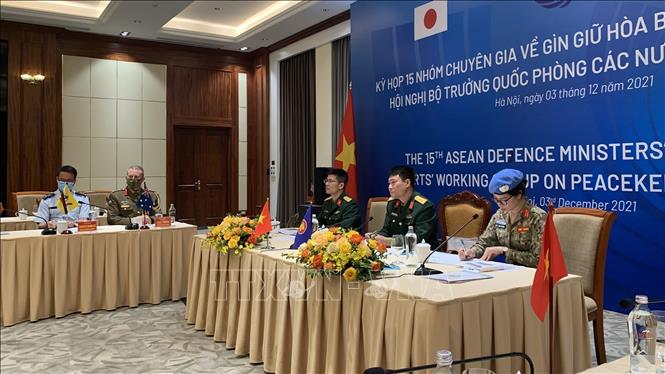 On December 3, 2021, the Ministry of National Defense organized the 15th Meeting of the Peacekeeping Experts Group, Cycle 4, 2021-2023, within the framework of the ASEAN Defense Ministers Meeting Plus (ADMM+) in an online format. In the photo: Colonel Mac Duc Trong (center) co-chaired the Conference at the Vietnam bridge. (Photo: VNA)[/caption] Vietnam's efforts in fulfilling its responsibilities as a member state in the field of peacekeeping will make practical contributions to resolving security issues, protecting peace and stability in the region and the world; at the same time, promoting cooperative relations with other countries, enhancing the prestige and position of the Army and creating a favorable international environment for building and defending the Fatherland in the new situation. Colonel Mac Duc Trong, Deputy Director of the Vietnam Peacekeeping Department, had an interview with VNA reporters to clarify the 10-year journey of the Vietnam Peacekeeping Department's Traditional Day - a specialized agency under the Ministry of National Defense, and the next steps of the force. Colonel, could you please summarize the results and significance that Vietnam has achieved over 10 years of participating in UN peacekeeping activities? In the past 10 years, the outstanding result is that Vietnam has had more than 800 professional officers and soldiers deployed individually and in units, including 114 officers deployed individually. We have had three main milestones in the past 10 years. That is, deploying the first two individual officers in 2014, deploying the first unit, a level 2 field hospital, in 2018, and deploying the No. 1 Engineering Team in 2022. The milestones show that every 4 years we move up a step. For individual positions, we have a rate of officers who have completed exceptionally well - the highest criteria (according to the 5 levels of the United Nations) reaching over 30%. This is a very high rate compared to the general level of countries participating in peacekeeping. This has created the image of Vietnamese officers with professionalism, high expertise, and enthusiasm for work. The discipline of officers of the Vietnam People's Army is recognized by international friends and the world . Regarding the type of unit, we have successfully deployed a level 2 field hospital in a very difficult area, operating in a complex environment with a lack of infrastructure. However, the requirements for expertise and technology require international standards, but we have met them. For field hospitals, not every country can fully deploy and successfully complete the tasks assigned by the United Nations, but we have the advantage that the Vietnamese Army can train its own military medical resources, which many countries cannot meet. After 4 years of deploying the field hospital, we have made a leap forward by deploying an Engineering team with 184 officers and employees, along with very large equipment with nearly 150 types of vehicles and machines... The total amount of goods carried is up to more than 2,200 tons. Deploying such a number of soldiers, vehicles and machines is very difficult. In the Abyei mission, many countries have not yet deployed a unit after two years, and the equipment has not yet arrived, but we have completed the deployment in one month. With the field hospital, despite the difficult conditions in South Sudan, we have still achieved very high results. The "predecessor" level 2 field hospital only had 200 - 300 patients. Since the Vietnam level 2 field hospital was deployed to the mission, we have received 1,200 - 2,000 patients a year. This shows that Vietnam's hospital has high capacity and a very good service spirit to be able to receive such a large number of new patients. In addition to patients who are UN officials and employees, we also receive many patients who are local people with a humanitarian spirit. Regarding the Engineering Team in Abyei, the UNISFA Mission Commander, the UN Deputy Secretary General and officials... when visiting all assessed that the Team had completed its mission excellently, exceeding the expectations of the United Nations. Not only did we complete it very well, very quickly, meeting all the mission requirements of the United Nations in difficult situations and conditions, we also did humanitarian work, built drainage systems, built schools, supported the people... Those were things beyond the expectations of the United Nations, helping the Engineering Team leave a great echo, and were assessed to have changed the face of the mission with the local people. What experiences have we learned from working in an international environment, Colonel? Through evaluating and summarizing the activities of individual officers and unit-level teams, everyone realized the great benefits of having the opportunity to work and experience in such an operating environment. Foreign language skills were significantly improved. We also learned a lot from the world. We have many strengths, but the world also has many advantages, which are opportunities for Vietnamese officers to learn. Operating in a multinational environment, work related to international law, with issues of conflict resolution, protection of women, children... as well as many international treaties and conventions that Vietnam has signed and is a member of, therefore requires strict compliance and implementation. This also contributes to improving the qualifications of Vietnamese soldiers. Those experiences and knowledge continue to be applied very well even when our officers have finished their term at the mission, returned to their work units, helping them perform their tasks better when working with international partners and friends. Colonel, could you tell us what are the advantages and difficulties in creating resources to participate in Vietnam's peacekeeping activities? In the coming time, will Vietnam expand the positions and formations participating in this activity, sir? The fact that we are increasingly expanding in terms of quantity and field of participation creates challenges in creating sources of cadres in the Vietnamese peacekeeping force. Currently, the Department of Peacekeeping is authorized by the Head of the Ministry of National Defense, the Head of the General Staff, and the General Department of Politics to recruit cadres from the entire army. Thus, we have a huge source of cadres from military regions, army corps, military branches, academies, schools... However, the most difficult thing is still foreign languages. There are cadres with high expertise but limited foreign languages, and on the contrary, cadres with foreign languages have limited expertise. Therefore, we must find a way to recruit cadres with both expertise and foreign languages. This has been a difficulty for the past 10 years. We always have to make efforts to find the most capable cadres, most suitable for each task, meeting specific positions. Regarding the plan to expand individual positions, we continue to look for new missions, but aim to deploy at least 3 officers at a time in a mission, to create a collective that supports and helps each other, and at the same time establish a Party cell so that comrades have conditions for Party activities. Regarding the expansion of unit types, we are researching types that are suitable for the policies and guidelines of the Party, State and Army, such as military inspection, command post protection... However, the implementation is very difficult because the competition between countries is very high. Currently, in the United Nations registration system for unit-level positions, there are always dozens of countries, so to be selected and deployed, we must have a very long and thorough preparation step. When wanting to expand a new type, the preparation step must be very solid to be able to achieve results. [caption id="attachment_863373" align="aligncenter" width="665"]
On December 3, 2021, the Ministry of National Defense organized the 15th Meeting of the Peacekeeping Experts Group, Cycle 4, 2021-2023, within the framework of the ASEAN Defense Ministers Meeting Plus (ADMM+) in an online format. In the photo: Colonel Mac Duc Trong (center) co-chaired the Conference at the Vietnam bridge. (Photo: VNA)[/caption] Vietnam's efforts in fulfilling its responsibilities as a member state in the field of peacekeeping will make practical contributions to resolving security issues, protecting peace and stability in the region and the world; at the same time, promoting cooperative relations with other countries, enhancing the prestige and position of the Army and creating a favorable international environment for building and defending the Fatherland in the new situation. Colonel Mac Duc Trong, Deputy Director of the Vietnam Peacekeeping Department, had an interview with VNA reporters to clarify the 10-year journey of the Vietnam Peacekeeping Department's Traditional Day - a specialized agency under the Ministry of National Defense, and the next steps of the force. Colonel, could you please summarize the results and significance that Vietnam has achieved over 10 years of participating in UN peacekeeping activities? In the past 10 years, the outstanding result is that Vietnam has had more than 800 professional officers and soldiers deployed individually and in units, including 114 officers deployed individually. We have had three main milestones in the past 10 years. That is, deploying the first two individual officers in 2014, deploying the first unit, a level 2 field hospital, in 2018, and deploying the No. 1 Engineering Team in 2022. The milestones show that every 4 years we move up a step. For individual positions, we have a rate of officers who have completed exceptionally well - the highest criteria (according to the 5 levels of the United Nations) reaching over 30%. This is a very high rate compared to the general level of countries participating in peacekeeping. This has created the image of Vietnamese officers with professionalism, high expertise, and enthusiasm for work. The discipline of officers of the Vietnam People's Army is recognized by international friends and the world . Regarding the type of unit, we have successfully deployed a level 2 field hospital in a very difficult area, operating in a complex environment with a lack of infrastructure. However, the requirements for expertise and technology require international standards, but we have met them. For field hospitals, not every country can fully deploy and successfully complete the tasks assigned by the United Nations, but we have the advantage that the Vietnamese Army can train its own military medical resources, which many countries cannot meet. After 4 years of deploying the field hospital, we have made a leap forward by deploying an Engineering team with 184 officers and employees, along with very large equipment with nearly 150 types of vehicles and machines... The total amount of goods carried is up to more than 2,200 tons. Deploying such a number of soldiers, vehicles and machines is very difficult. In the Abyei mission, many countries have not yet deployed a unit after two years, and the equipment has not yet arrived, but we have completed the deployment in one month. With the field hospital, despite the difficult conditions in South Sudan, we have still achieved very high results. The "predecessor" level 2 field hospital only had 200 - 300 patients. Since the Vietnam level 2 field hospital was deployed to the mission, we have received 1,200 - 2,000 patients a year. This shows that Vietnam's hospital has high capacity and a very good service spirit to be able to receive such a large number of new patients. In addition to patients who are UN officials and employees, we also receive many patients who are local people with a humanitarian spirit. Regarding the Engineering Team in Abyei, the UNISFA Mission Commander, the UN Deputy Secretary General and officials... when visiting all assessed that the Team had completed its mission excellently, exceeding the expectations of the United Nations. Not only did we complete it very well, very quickly, meeting all the mission requirements of the United Nations in difficult situations and conditions, we also did humanitarian work, built drainage systems, built schools, supported the people... Those were things beyond the expectations of the United Nations, helping the Engineering Team leave a great echo, and were assessed to have changed the face of the mission with the local people. What experiences have we learned from working in an international environment, Colonel? Through evaluating and summarizing the activities of individual officers and unit-level teams, everyone realized the great benefits of having the opportunity to work and experience in such an operating environment. Foreign language skills were significantly improved. We also learned a lot from the world. We have many strengths, but the world also has many advantages, which are opportunities for Vietnamese officers to learn. Operating in a multinational environment, work related to international law, with issues of conflict resolution, protection of women, children... as well as many international treaties and conventions that Vietnam has signed and is a member of, therefore requires strict compliance and implementation. This also contributes to improving the qualifications of Vietnamese soldiers. Those experiences and knowledge continue to be applied very well even when our officers have finished their term at the mission, returned to their work units, helping them perform their tasks better when working with international partners and friends. Colonel, could you tell us what are the advantages and difficulties in creating resources to participate in Vietnam's peacekeeping activities? In the coming time, will Vietnam expand the positions and formations participating in this activity, sir? The fact that we are increasingly expanding in terms of quantity and field of participation creates challenges in creating sources of cadres in the Vietnamese peacekeeping force. Currently, the Department of Peacekeeping is authorized by the Head of the Ministry of National Defense, the Head of the General Staff, and the General Department of Politics to recruit cadres from the entire army. Thus, we have a huge source of cadres from military regions, army corps, military branches, academies, schools... However, the most difficult thing is still foreign languages. There are cadres with high expertise but limited foreign languages, and on the contrary, cadres with foreign languages have limited expertise. Therefore, we must find a way to recruit cadres with both expertise and foreign languages. This has been a difficulty for the past 10 years. We always have to make efforts to find the most capable cadres, most suitable for each task, meeting specific positions. Regarding the plan to expand individual positions, we continue to look for new missions, but aim to deploy at least 3 officers at a time in a mission, to create a collective that supports and helps each other, and at the same time establish a Party cell so that comrades have conditions for Party activities. Regarding the expansion of unit types, we are researching types that are suitable for the policies and guidelines of the Party, State and Army, such as military inspection, command post protection... However, the implementation is very difficult because the competition between countries is very high. Currently, in the United Nations registration system for unit-level positions, there are always dozens of countries, so to be selected and deployed, we must have a very long and thorough preparation step. When wanting to expand a new type, the preparation step must be very solid to be able to achieve results. [caption id="attachment_863373" align="aligncenter" width="665"] 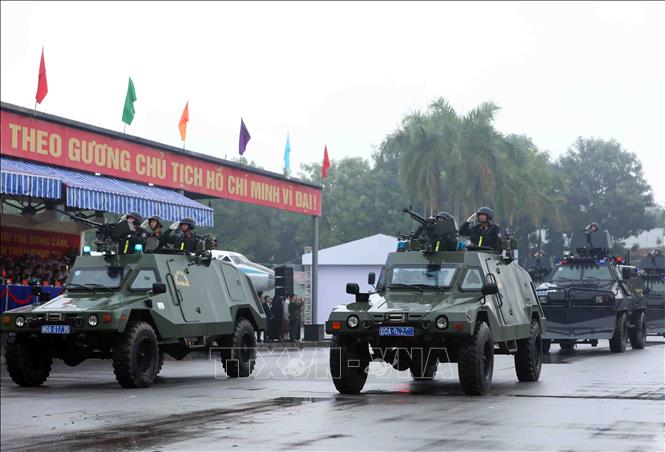 Vehicles participating in the exercise at the ceremony announcing the decision to establish and launch the Peacekeeping Police Unit No. 1. (Photo: VNA)[/caption] In addition to sending troops, we also have another goal of developing the Vietnam Peacekeeping Department into one of the leading peacekeeping training centers in the region. In the coming time, what is the key direction to achieve this goal, Colonel? Initially, when the first two officers were deployed in 2014, we had to invite a number of foreign military attaches who were Vietnam's partners to share experiences. When we were in the first steps, we could not train ourselves, so we had to rely on international friends. However, in the 10 years since then, we have trained individual courses from the source of officers who have completed their term of service and returned, depending on the position they performed their duties to train the next comrades. We have applied pre-deployment training at the unit level, which is very difficult because we have to follow the United Nations' system of programs, training, and curriculum with a lot of content. It is impossible to send an entire unit abroad for training. With this, we have done it very successfully, from comrades who went individually, had experience returning, together with the support of other countries in several subjects, lectures..., we have been completely proactive in pre-deployment training at the unit level. This is a very difficult task because when the United Nations comes to inspect the unit, they check each lecture in detail, even the daily student registration book... However, we have done it systematically, seriously, with a very good system of records and books, fully meeting the United Nations' requirements for training programs. The success and initiative in training at the unit level is a very important step forward in our training. Regarding international training, in 10 years, from having no experience, having to rely on teachers and lecturers from other countries to teach, then combining international and domestic lecturers and teachers, up to now we have organized very high-level professional training courses, coordinated between international and Vietnamese, organized in Vietnam to train students from countries in the region and internationally. The United Nations has come to inspect the lectures many times; observed, evaluated and recognized Vietnamese lecturers. This is the whole process of efforts to accumulate experience in practice and in the classroom of comrades to be able to meet the standards. In recent years, we have organized many such training courses. Currently, we are also organizing training courses with both Vietnamese and international students, international and Vietnamese lecturers. At first, we taught general lessons, gradually there were very high-level professional lectures. The cadres themselves went back to directly teach subjects related to the content of that program. It can be said that the path to becoming a peacekeeping training center of regional and international stature of Vietnam is taking shape and achieving good results. We have not said that we have reached regional and international stature, but we are doing that, building courses with international participation in which we stand on our own podium, bringing Vietnam's experiences to the international. That is the right path and we believe that we will achieve that goal in a short time. Sincerely thank you, Colonel!
Vehicles participating in the exercise at the ceremony announcing the decision to establish and launch the Peacekeeping Police Unit No. 1. (Photo: VNA)[/caption] In addition to sending troops, we also have another goal of developing the Vietnam Peacekeeping Department into one of the leading peacekeeping training centers in the region. In the coming time, what is the key direction to achieve this goal, Colonel? Initially, when the first two officers were deployed in 2014, we had to invite a number of foreign military attaches who were Vietnam's partners to share experiences. When we were in the first steps, we could not train ourselves, so we had to rely on international friends. However, in the 10 years since then, we have trained individual courses from the source of officers who have completed their term of service and returned, depending on the position they performed their duties to train the next comrades. We have applied pre-deployment training at the unit level, which is very difficult because we have to follow the United Nations' system of programs, training, and curriculum with a lot of content. It is impossible to send an entire unit abroad for training. With this, we have done it very successfully, from comrades who went individually, had experience returning, together with the support of other countries in several subjects, lectures..., we have been completely proactive in pre-deployment training at the unit level. This is a very difficult task because when the United Nations comes to inspect the unit, they check each lecture in detail, even the daily student registration book... However, we have done it systematically, seriously, with a very good system of records and books, fully meeting the United Nations' requirements for training programs. The success and initiative in training at the unit level is a very important step forward in our training. Regarding international training, in 10 years, from having no experience, having to rely on teachers and lecturers from other countries to teach, then combining international and domestic lecturers and teachers, up to now we have organized very high-level professional training courses, coordinated between international and Vietnamese, organized in Vietnam to train students from countries in the region and internationally. The United Nations has come to inspect the lectures many times; observed, evaluated and recognized Vietnamese lecturers. This is the whole process of efforts to accumulate experience in practice and in the classroom of comrades to be able to meet the standards. In recent years, we have organized many such training courses. Currently, we are also organizing training courses with both Vietnamese and international students, international and Vietnamese lecturers. At first, we taught general lessons, gradually there were very high-level professional lectures. The cadres themselves went back to directly teach subjects related to the content of that program. It can be said that the path to becoming a peacekeeping training center of regional and international stature of Vietnam is taking shape and achieving good results. We have not said that we have reached regional and international stature, but we are doing that, building courses with international participation in which we stand on our own podium, bringing Vietnam's experiences to the international. That is the right path and we believe that we will achieve that goal in a short time. Sincerely thank you, Colonel!Source: baotintuc.vn


![[Photo] Hue: Inside the kitchen that donates thousands of meals a day to people in flooded areas](https://vphoto.vietnam.vn/thumb/1200x675/vietnam/resource/IMAGE/2025/10/29/1761738508516_bepcomhue-jpg.webp)

![[Photo] Prime Minister Pham Minh Chinh chaired a meeting to evaluate the operation of the two-level local government model.](https://vphoto.vietnam.vn/thumb/1200x675/vietnam/resource/IMAGE/2025/10/29/1761751710674_dsc-7999-jpg.webp)
![[Photo] Human love in the flood in Hue](https://vphoto.vietnam.vn/thumb/1200x675/vietnam/resource/IMAGE/2025/10/29/1761740905727_4125427122470875256-2-jpg.webp)
![[Photo] Prime Minister Pham Minh Chinh chaired a meeting to discuss solutions to overcome the consequences of floods in the central provinces.](https://vphoto.vietnam.vn/thumb/1200x675/vietnam/resource/IMAGE/2025/10/29/1761716305524_dsc-7735-jpg.webp)

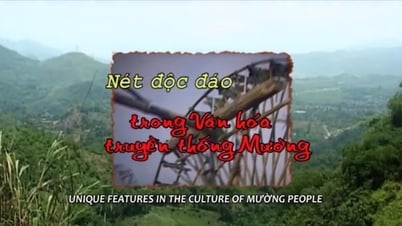



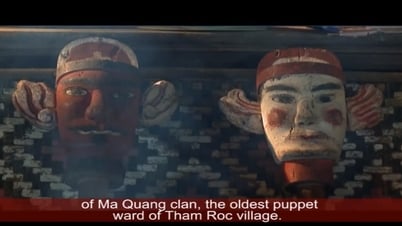

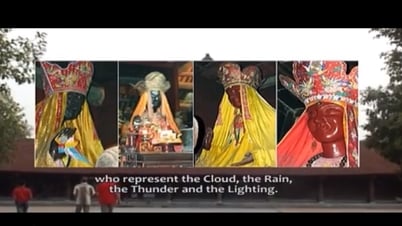
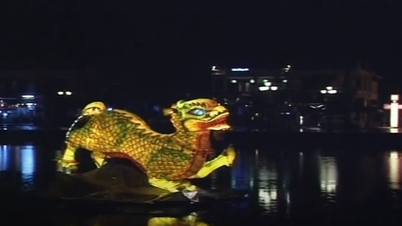




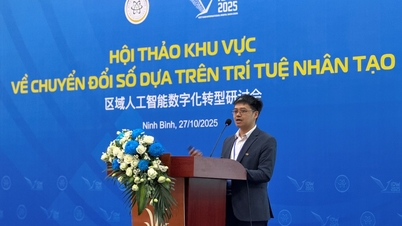

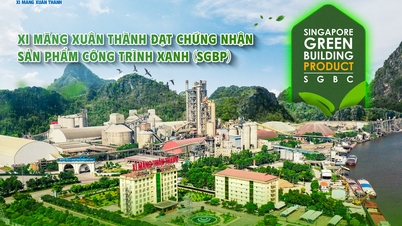

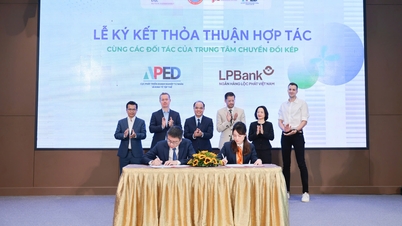



































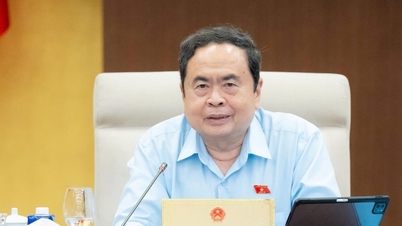

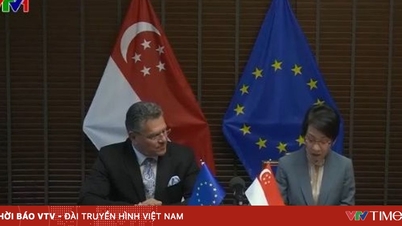
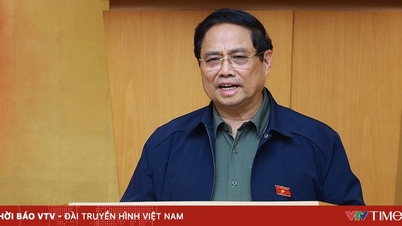
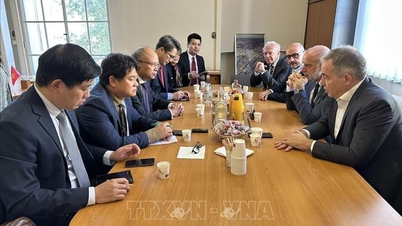

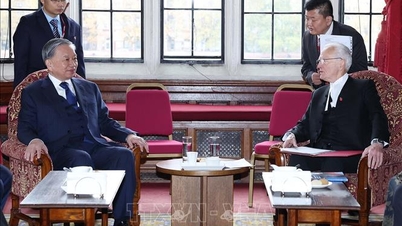
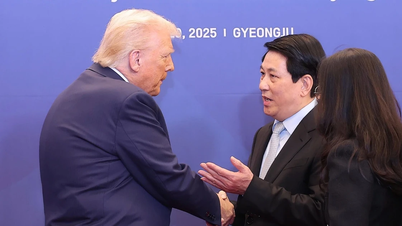

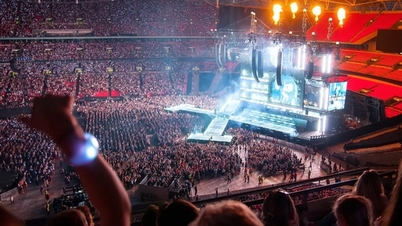

![[Live] Concert Ha Long 2025: "Heritage Spirit - Brightening the Future"](https://vphoto.vietnam.vn/thumb/402x226/vietnam/resource/IMAGE/2025/10/29/1761743605124_g-anh-sang-am-thanh-hoanh-trang-cua-chuong-trinh-mang-den-trai-nghiem-dang-nho-cho-du-khach-22450328-17617424836781829598445-93-0-733-1024-crop-1761742492749383512980.jpeg)



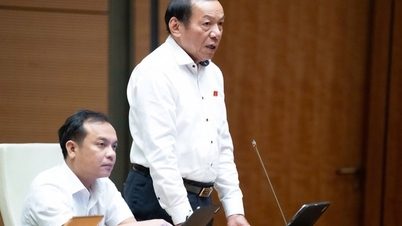

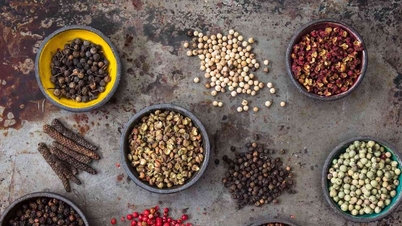

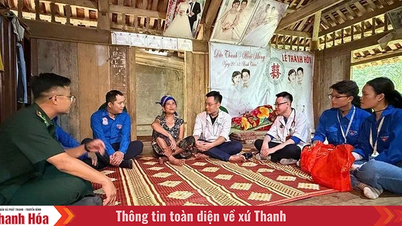

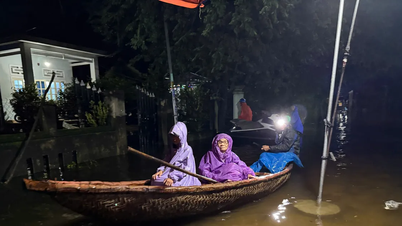


















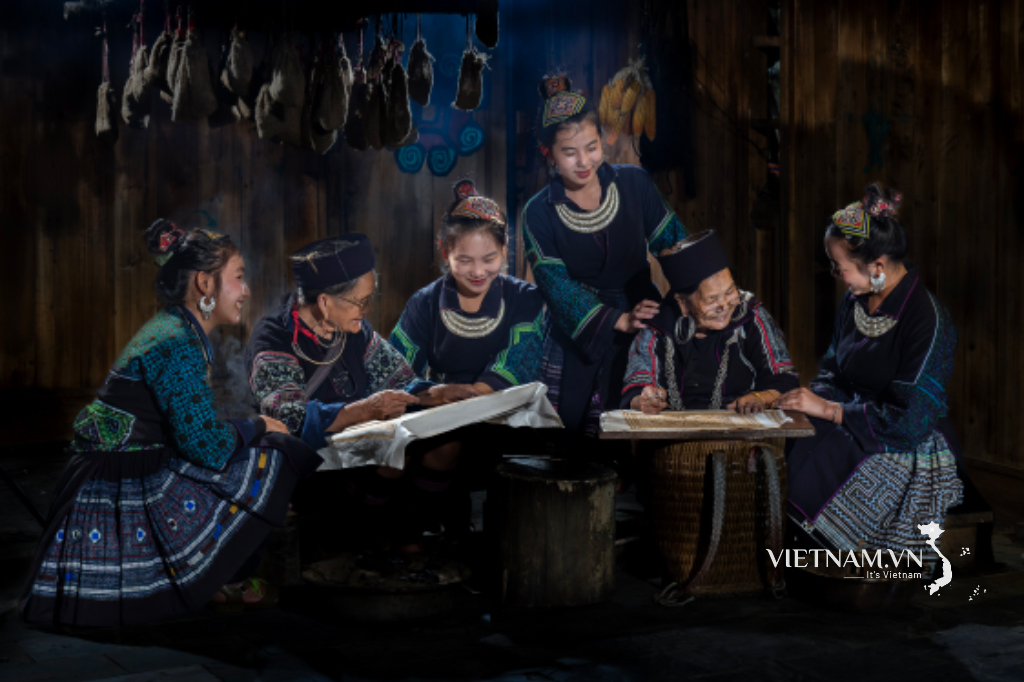
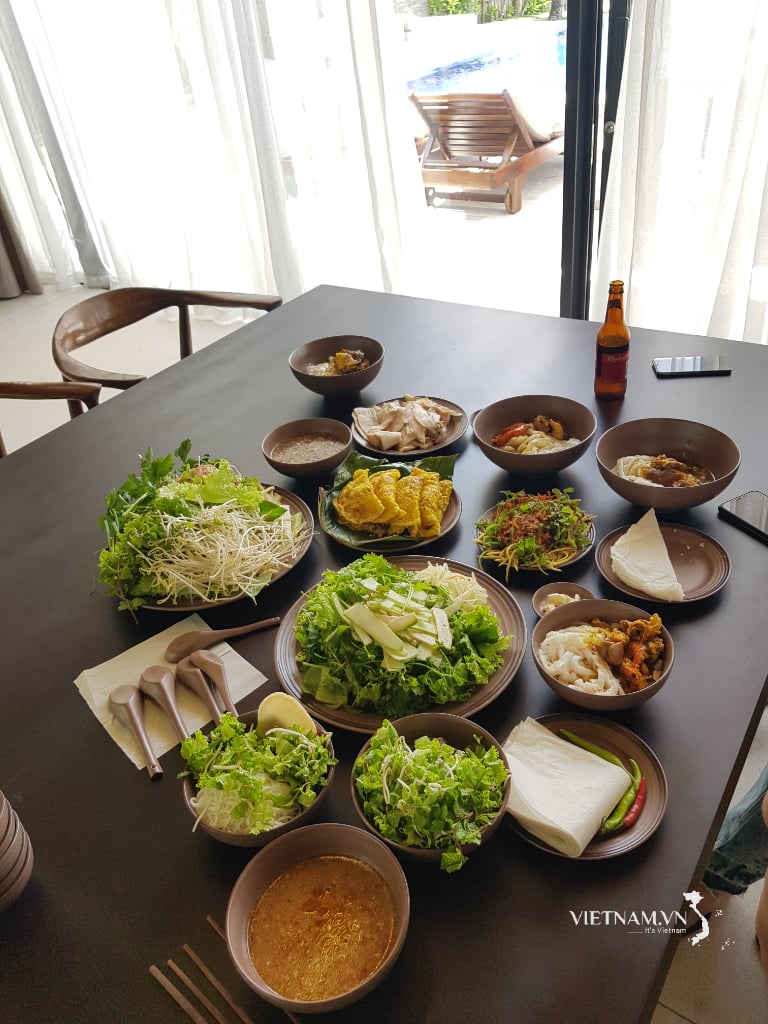
Comment (0)